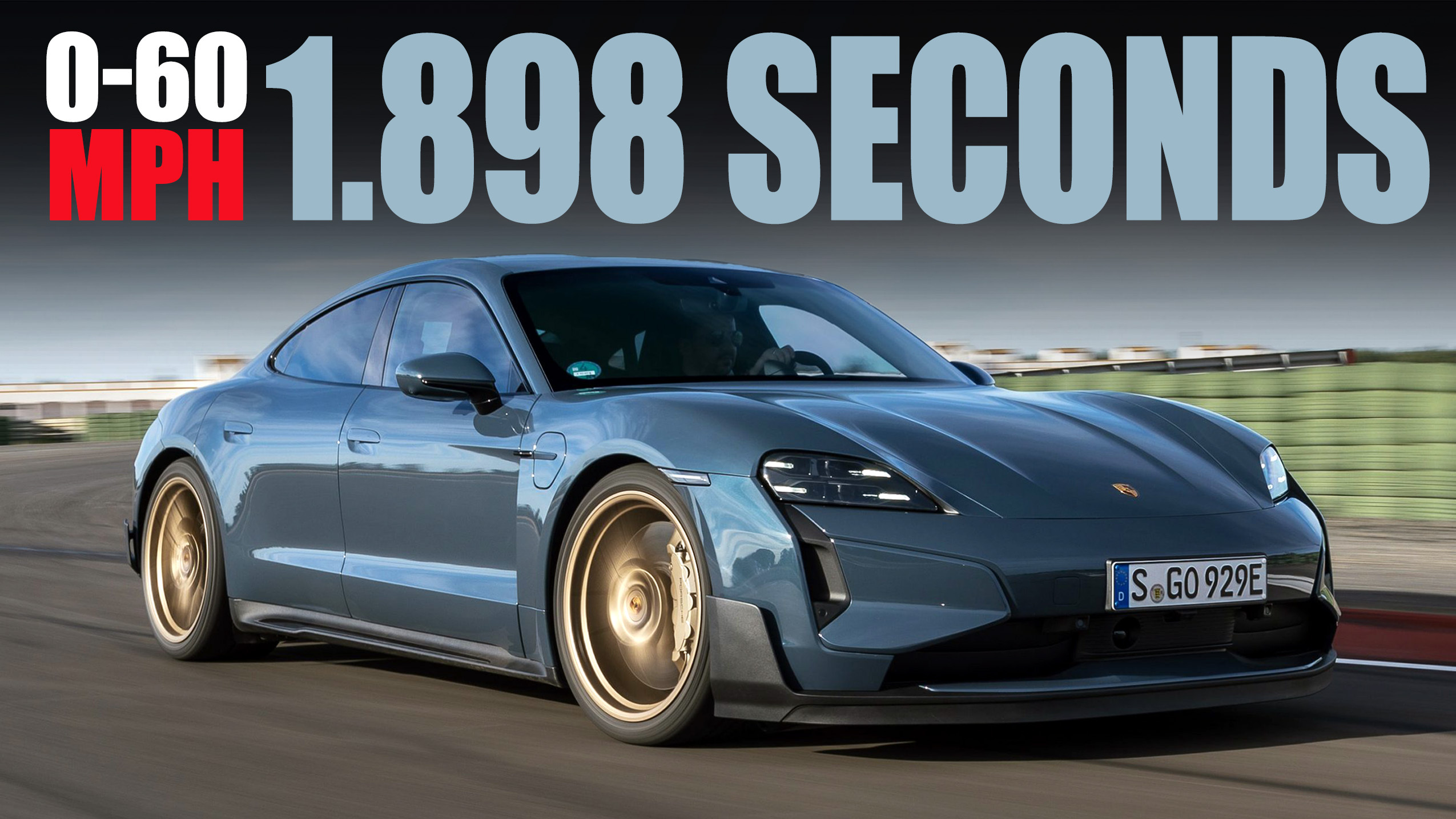Porsche’s Taycan Turbo GT: The Game-Changer That Shattered the 0-60 Record

In a stunning development that has sent shivers through the automotive world, the Porsche Taycan Turbo GT has officially become the fastest production car to complete a 0 to 60 mph sprint in under two seconds. According to the revered Car and Driver, this magnificent machine clocked in at a jaw-dropping 1.88 seconds, making it the first car ever to break the elusive 2-second barrier in their rigorous testing. This remarkable feat positions the Taycan Turbo GT as a formidable contender in the fierce battle among electric supercars.

This groundbreaking achievement didn’t come from a cushy dragstrip; rather, the testing protocol involved runs on a standard, unprepared surface—something that few competitors could achieve without specialized conditions. Historically, Tesla had boasted a 0-60 claim of under two seconds, but the details surrounding their acceleration claims often left room for debate. The Taycan, however, not only meets expectations but has exceeded them, leaving competitors like the Tesla Model S Plaid and Lucid Air Sapphire in its dust.
The Power Behind the Performance
Porsche’s Taycan Turbo GT isn’t just fast; it’s revolutionary. With its powerhouse of a motor, the Taycan Turbo GT delivers an astounding 777 horsepower, which can surge up to 1,019 hp (about 1,092 hp temporarily). Equipped with Porsche’s innovative launch control, this car is engineered for lightning-fast starts. Notably, Porsche claims a top speed of 180 mph (289 km/h) and a manufacturer-estimated 0-60 time of 2.2 seconds, upgraded to 2.1 seconds with the optional Weissach package. This reinforces the Taycan Turbo GT’s status as a leader in electric performance vehicles.
Testing Results and Historical Significance
According to Car and Driver, the exact runs recorded a blistering 0-60 time of 1.910 seconds on one run and an astonishing 1.898 seconds on another. These times included a standard 'rollout' accounting for one foot of movement—a detail that offers a 0.1-second advantage, revealing even greater raw speed beneath the surface. Even without factoring in the rollout, the Taycan Turbo GT stands as the fastest in history, effectively dethroning its rivals and marking a major milestone in automotive engineering.
Competitors Can’t Keep Up
While the Taycan Turbo GT may have claimed the 0-60 crown, it’s important to note that Tesla’s Model S Plaid and Lucid Air Sapphire excel at high speeds, especially as things heat up. In quarter-mile tests, the Taycan completed the distance in an impressively swift 9.3 seconds, but the story diverges at higher velocities. For instance, when reaching the 150 mph mark, both the Plaid and Sapphire start to pick up their pace, with the Model S Plaid capturing the lead at 160 mph and the Sapphire pulling ahead by even more as speeds climb towards 170 mph.
The Takeaway: Volvo of Future Performance
This announcement is more than a jab at Tesla; it represents a shift in how electric vehicles are perceived in the high-performance arena. As Porsche has always been a benchmark for blending luxury, comfort, and performance, the Taycan Turbo GT showcases the possibilities of electric technology while re-establishing itself as a traditional performance brand. This is not just about new numbers on paper; it indicates how far we've come in the evolution of electric vehicles and where we may be headed as technology continues to grow exponentially.
Final Thoughts on the Taycan Turbo GT
In conclusion, the Porsche Taycan Turbo GT has redefined the electric car landscape by achieving remarkable performance metrics. With its record-breaking time from 0-60 mph under two seconds achieved on a standard surface, it is now the fastest production car ever tested by Car and Driver. This achievement not only sets a new benchmark but also reignites the fierce rivalry between modern electric supercars. As manufacturers scramble to catch up, one thing is clear—Porsche has solidified its position at the forefront of electric innovation.